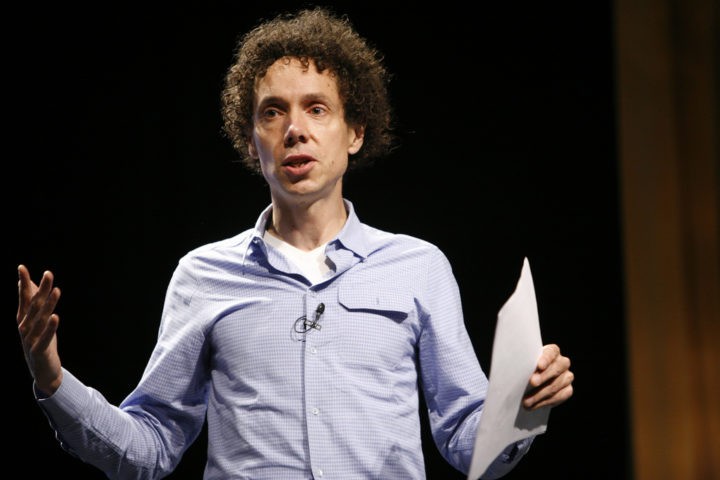What I learnt about Deliberate Practice

I have been learning about Deliberate Practice by reading Peak by Anders Ericsson and Robert Pool. This book has changed the way I think about a lot of things, including my own self-development and the way I work as a business coach.
I have been raving about the ideas in the book, especially deliberate practice. So thanks to my partner and friends who have been talking about it with me on some long walks up big hills. And in the pub afterwards.
This is a review of the book, but I will write more about it later as I work out my thinking about how to apply deliberate practice to business coaching.
What is Peak all about?
Anders Ericcson and Robert Pool are the people behind the 10,000-hour rule. Malcolm Gladwell popularised this idea, but as they very tactfully point out in the book, Gladwell got the idea slightly wrong.

Apparently, you don’t need to practice for 10,000 hours to become really good at something. The good news here for most of us is that we don’t have to do the full 10,000 hours (or 2 hours a day, 7 days a week for the next 13 years) to be amazing. Which is a bit of a relief, I have got to say.
The bad news is that practising alone isn’t enough, whether you do it for 100 hours, or 10,000. It is, actually a bit more complicated than that.
It’s not the 10,000 hours of practice, it’s the deliberate practice that makes you a peak performer – whether you’re a top business coach or a concert violinist.
But, as someone who loves to get better at the things I like to do, whether that is cooking Indian food or business coaching, Peak, inspired me and gave me some great ideas about how to improve what I do.
The big idea in Peak – no such thing as talent
Anders and Robert have spent their lives studying and working with people who have developed a very high level of skill in different areas.
There are the obvious ones such as world-class violin players and athletes but they have also looked at people who get their kicks from being the best at remembering very long series of three-digit numbers (don’t try this one after a few drinks), fighter plane pilots and surgeons.
They have only studied one business coach so far, and it wasn’t me, but there is still time.
And what they have found is that there is no such thing as natural talent.
What do you mean – no such thing as talent?
I found this idea really challenging. And so did all the people I have talked about Peak with since. We all know about talent, don’t we? We see people who have a talent for music, maths, or for cooking delicious food, and we wish we had their talent.
I know (or I thought I knew) all the things I wasn’t talented at, such as sport, drawing or playing the guitar. And because I wasn’t talented, I just didn’t bother with those things – they are for other people. I can now see that I’m no good at these things either because I didn’t want to do them (netball at school, ugh) so I didn’t practice them at all. Or because I was too lazy to do the practice needed to become even slightly better at them.
As I read the book I remember the 20 minutes I spent while someone tried to teach me to play the guitar before I gave up, claiming that I couldn’t do it. It hurt my fingers and confused me. I never even gave it a chance. I was too lazy/shy/unmotivated to give it more than 20 minutes before telling myself that I couldn’t do it.

I could have been in Mogwai or Queens of the Stone Age! But I gave up, believing that the guitar wasn’t for untalented people like me.
Everyone that I have talked to about this has brought out examples of people they know (often their children) who have found playing the guitar or drawing easy straight away because they are talented. But Peak debunks this talk of natural talent with some pretty interesting studies.
In fact, it turns out that the people who find something easy at first are less likely to become brilliant later. But the ones who work at it more from the beginning are more likely to be better over time. See, I could have been Jimi Hendrix, cos I was rubbish the first time I tried to play the guitar.
The most useful idea in Peak – Deliberate Practice
If there is no such thing as talent, and you don’t need to do your 10,000 hours, what do you need to do if you want to be really good at something?
Anders and Robert have done all this work and have identified this thing called Deliberate Practice.This is behind just about everyone they have studied who have excelled at what they do.
Here are the key ingredients:
- It has to be something you enjoy or you won’t stick with it.
- You need to have a coach or teacher – you cannot do this on your own.
- We all have to do things which are outside of your comfort zone and push your comfort zone a little wider each time.
- You have to be willing to try things which are outside of your normal abilities.
- You must have to have specific goals or targets (notice how this comes up a lot in business thinking).
- Focus on improving specific aspects of your performance.
- Your deliberate practice has to be…deliberate. You have to concentrate on it and think about how you can get better.
- You need feedback on what you are doing, from the teacher, from yourself and from fellow students.
- Excellence comes from using mental representations to monitor how you are doing and correct mistakes.
- It helps if you can build on skills you already have.
Why you should read Peak
Although Peak isn’t strictly speaking, a business book, it is still very relevant for anyone who wants to develop their skills in running a business. It has certainly made me think more about how I learn new things.
For example, I have been doing a copywriting course recently. It is one of those video courses, so it would be easier to just watch the videos and not do the exercises. But I have tried to use deliberate practice here, and do the exercises, even though some of them are really difficult and make my brain hurt because I’m having to change my writing habits.
Peak may help you to develop your skills in how you work with clients, encourage you to get more feedback, and actively set those goals and targets.
It is also a fascinating reading. It is easy to read, and full of great write-ups of other people’s work and the studies the authors have done. Ironically, it is just as enjoyable as reading Malcolm Gladwell so if you like his work, you might like this.
And it gives you tons to talk about with your friends or in the pub after a long walk. What could be better?
How to buy Peak and learn about deliberate practice
You can buy the book here, and let me know what you think.
How I’m using the idea of deliberate practice for my new programme
I’ve been so impressed with Peak and the ideas of deliberate practice, that I’ve started using the ideas with many of my business coaching clients. I’m not sure they know that I’m doing this, but they don’t need to.
I’m also using a lot of the ideas to build my Remarkable Business programme for people who would prefer to get really good at running a business in a different way. I’ve been able to build in a lot of deliberate practice principles into the new programme. And this means that Remarkable Business can help people to develop their business skills much more quickly than if they had to spend 10,000 hours slogging away in the traditional way.
Full details of Remarkable Business can be found here…
More ideas from my obsession with business books
One of the things I like to do with my blog is to write about the books I’m reading and what I’ve learnt, so you don’t have to read the whole book. I can just pick out the good stuff for you and give you the ideas I think will help you with your business.
Here are some good articles based on books I’ve been reading:
- Using checklists to keep things running smoothly – I use these ideas by Atul Gawande all the time
- How to use the magic word “because” – I stole this from Robert Cialdini’s classic Influence
- Seth Godin and the Purple Cow – if you’re not already familiar with this, there’s a short video to explain this key idea
- Creative swiping – my take on Tom Peter’s best idea ever
Photo credits to Poptech and Ferran from Flickr on a Creative Commons license


